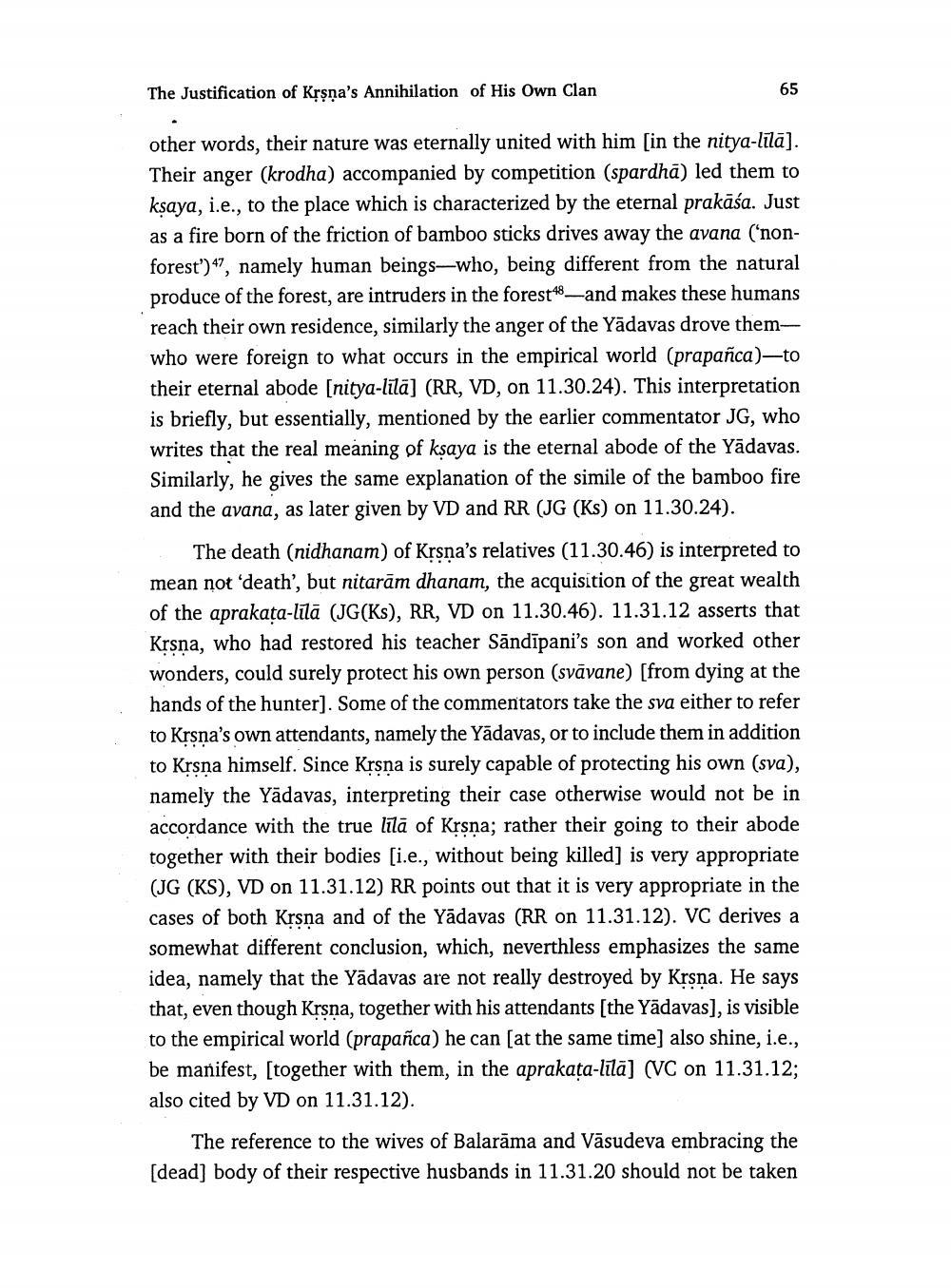________________
The Justification of Krsna's Annihilation of His Own Clan
65
other words, their nature was eternally united with him [in the nitya-līlā]. Their anger (krodha) accompanied by competition (spardhā) led them to ksaya, i.e., to the place which is characterized by the eternal prakāśa. Just as a fire born of the friction of bamboo sticks drives away the avana ('nonforest')47, namely human beings—who, being different from the natural produce of the forest, are intruders in the forest 48—and makes these humans reach their own residence, similarly the anger of the Yādavas drove themwho were foreign to what occurs in the empirical world (prapanca)—to their eternal abode [nitya-lilā] (RR, VD, on 11.30.24). This interpretation is briefly, but essentially, mentioned by the earlier commentator JG, who writes that the real meaning of ksaya is the eternal abode of the Yādavas. Similarly, he gives the same explanation of the simile of the bamboo fire and the avana, as later given by VD and RR (JG (Ks) on 11.30.24).
The death (nidhanam) of Krsna's relatives (11.30.46) is interpreted to mean not 'death', but nitarām dhanam, the acquisition of the great wealth of the aprakata-līlā (JG(Ks), RR, VD on 11.30.46). 11.31.12 asserts that Krsna, who had restored his teacher Sändīpani's son and worked other wonders, could surely protect his own person (svāvane) [from dying at the hands of the hunter). Some of the commentators take the sva either to refer to Krsna's own attendants, namely the Yādavas, or to include them in addition to Krsna himself. Since Krsna is surely capable of protecting his own (sva), namely the Yādavas, interpreting their case otherwise would not be in accordance with the true līlā of Krsna; rather their going to their abode together with their bodies [i.e., without being killed) is very appropriate (JG (KS), VD on 11.31.12) RR points out that it is very appropriate in the cases of both Krsna and of the Yādavas (RR on 11.31.12). VC derives a somewhat different conclusion, which, neverthless emphasizes the same idea, namely that the Yādavas are not really destroyed by Krsna. He says that, even though Krsna, together with his attendants (the Yādavas), is visible to the empirical world (prapañca) he can (at the same time) also shine, i.e., be manifest, [together with them, in the aprakata-līlā] (VC on 11.31.12; also cited by VD on 11.31.12).
The reference to the wives of Balarāma and Vāsudeva embracing the [dead] body of their respective husbands in 11.31.20 should not be taken




